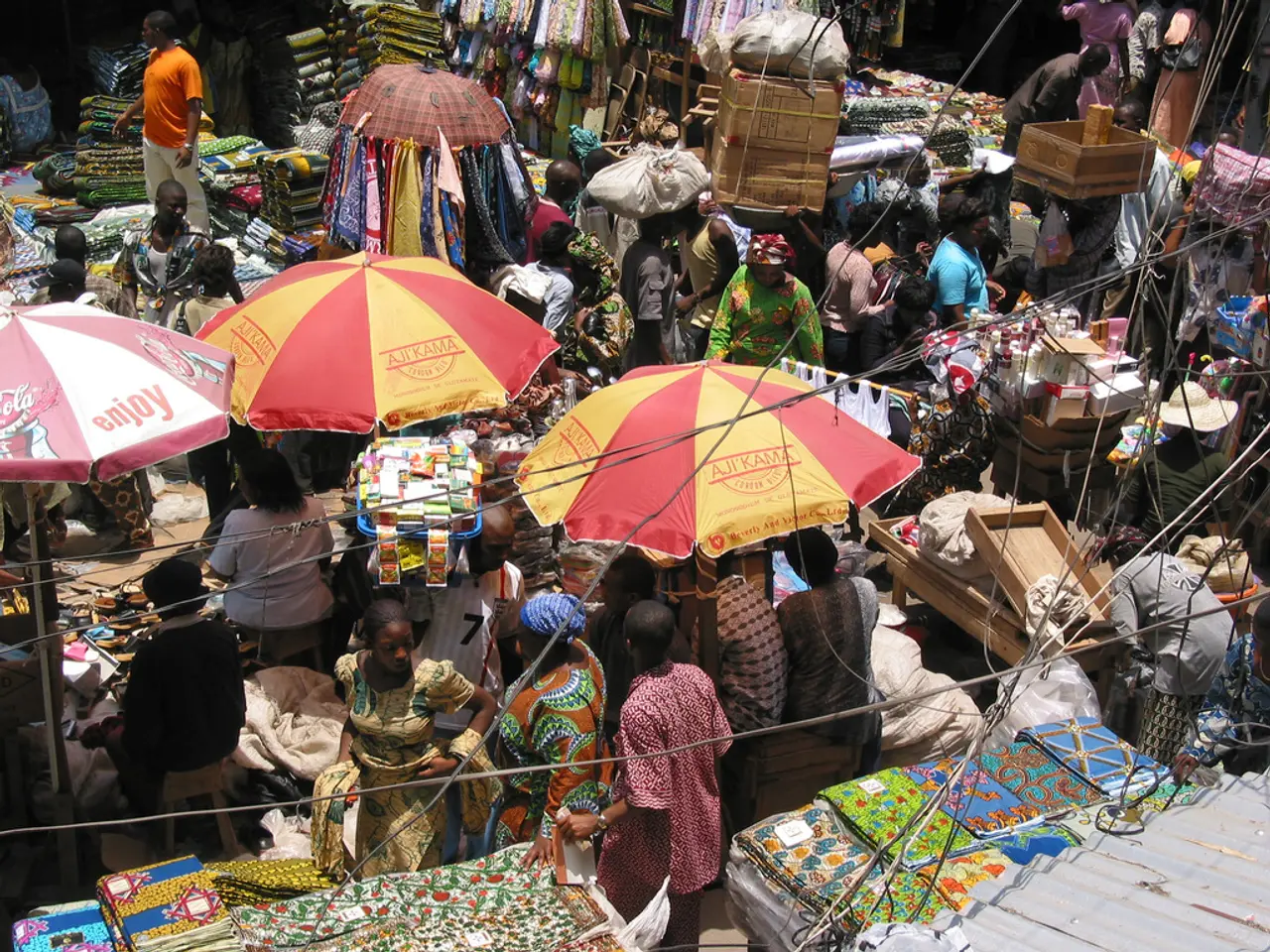Investigating Subscribers: What steps can be taken to counteract fraudulent networks in the Philippines?
In the rapidly evolving digital landscape, the threat of fraud looms large, with various forms such as money muling and deepfakes posing significant challenges. The Asia-Pacific (APAC) region, in particular, is witnessing a striking 2.6% growth in fraud networks over the past year, making it crucial for companies to stay vigilant.
Fraud networks, consisting of multiple accounts controlled by one or more fraudsters, are more organized and pose a greater threat to businesses compared to individual fraudsters. These networks can employ tactics like account takeovers, identity theft, and money laundering. In the APAC region, countries like Oman (7.2%), China (4.6%), Hong Kong (2.9%), and Indonesia (2.2%) have the highest percentages of 'leaders' of these networks [1].
To combat this growing threat, companies in the Philippines are taking a proactive approach. They are primarily focusing on implementing advanced fraud detection systems, leveraging real-time transaction monitoring, enhancing customer due diligence, and collaborating closely with regulators and law enforcement [2].
One of the key proactive steps taken by the Philippines is the creation of an industry-led fraud bureau. This initiative aims to enable secure data sharing and use artificial intelligence (AI) to detect suspicious patterns and blacklist fraudulent actors across banks, fintechs, and telcos. This is part of the Real-Time Fraud Intelligence and Response Act under consideration [1].
Another significant measure is the implementation of the Anti-Financial Account Scamming Act (AFASA). This law mandates financial institutions to establish robust, automated risk management systems that can monitor and block suspicious transactions in real time. It also imposes harsher penalties on scammers and criminalizes money mule activities [3].
The Philippines is also working towards building a secure, simplified digital identity system with the Open Finance-Enabled eKYC Registry Law. This registry is linked to the Bangko Sentral ng Pilipinas (BSP), making customer onboarding fraud-resistant and frictionless [1].
In addition to these technological measures, the Philippines is also focusing on legal and collaborative efforts. For example, the BSP’s expanded powers under AFASA include cybercrime investigation and cooperation with law enforcement. The country is also proactively strengthening its legal and regulatory frameworks to address fraud and cybercrime more effectively on a national level [3].
Public education campaigns are another important preventive tool pursued by financial institutions. These campaigns aim to educate users to recognize scams and to avoid becoming unwitting money mules [2].
The Philippines has a relatively low number of fraud networks, comprising just 0.3% of the country's users, making it a success story in the APAC region [1]. By comparison, 10.2% of all users in Bangladesh are part of fraud networks, and in Vietnam, that figure is 6.6%. In Singapore, it's 2.8% [1].
Despite these efforts, it's essential for companies to continue taking actions to prevent fraud networks. Real-time monitoring, biometric intelligence, and device fingerprinting are important measures to spot fraudulent activities [2]. The proliferation of fraud networks, also known as fraud rings, is a rising trend globally, with every 100th user of a digital platform or service being a member of a fraud ring in 2023 [3].
References:
[1] Asian Development Bank. (2023). Fighting Fraud in the Digital Economy: Lessons from the Philippines. Retrieved from https://www.adb.org/sites/default/files/publication/636433/adb-fighting-fraud-digital-economy-lessons-philippines.pdf
[2] Bangko Sentral ng Pilipinas. (2023). Combatting Fraud Networks: The Philippine Approach. Retrieved from https://www.bsp.gov.ph/2023/03/combatting-fraud-networks-the-philippine-approach/
[3] Anti-Money Laundering Council. (2023). The Philippines' Fight Against Financial Crimes. Retrieved from https://amlc.gov.ph/the-philippines-fight-against-financial-crimes/
[4] National Privacy Commission. (2023). Enhancing Data Privacy and Protection in the Digital Economy. Retrieved from https://privacy.gov.ph/2023/02/enhancing-data-privacy-and-protection-in-the-digital-economy/
[5] Bangko Sentral ng Pilipinas. (2023). Regulations for Online Gambling Transactions. Retrieved from https://www.bsp.gov.ph/2023/02/regulations-for-online-gambling-transactions/
Sports organizations must be vigilant against fraudulent activities arising from the digitization of their operations, as fraudsters could potentially exploit the expanding online ecosystem. The Philippines' comprehensive approach to combating fraud networks provides valuable insights for sports organizations, with measures such as industry-led fraud bureaus, advanced detection systems, and exemplary legal frameworks playing crucial roles in preventing fraud and promoting secure digital sports economies.








